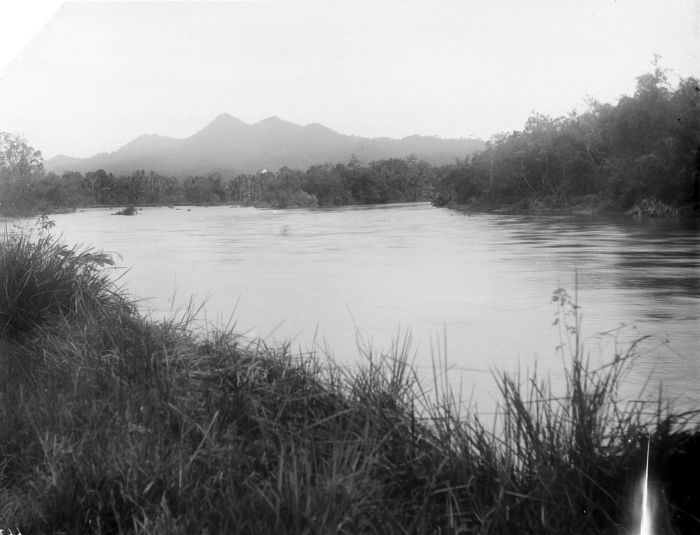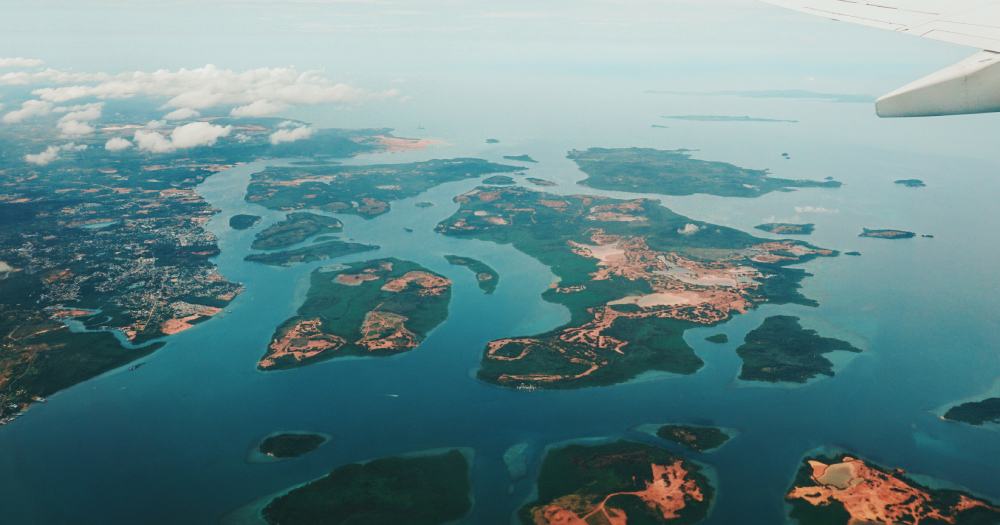Not many Singaporeans are aware of this these days, but Singapore at one point entered into a water agreement arrangement with Indonesia.
Lee Kuan Yew looked to Indonesia for water
To diversify its water supply, Singapore looked to Indonesia as an alternative option.
The late Lee Kuan Yew first voiced his interest publicly in 1987 in importing water from Indonesia when he was prime minister.
In August 1990, Singapore and Indonesia signed an agreement to pursue a framework of joint development in Riau.
Both sides then signed an agreement on June 28, 1991, to jointly develop and share Riau's water resources, after professional surveyors had endorsed the project's viability, according to Joey Long, an Associate Professor of History at the National University of Singapore (NUS).
The project involved the construction of dams and reservoirs in the Sungei Kampar basin, the Indragiri River basin, and a delta zone between the two basins.
 View of the Kampar River near Muara Takus, a historical Buddhist temple complex thought to belong to the Sriwijaya empire. (Image via Wikipedia)
View of the Kampar River near Muara Takus, a historical Buddhist temple complex thought to belong to the Sriwijaya empire. (Image via Wikipedia)
Surface and underwater pipelines were also in the plans.
Under the agreement, Singapore will be permitted to draw up to 4,546,100 cubic metres of water daily for a century.
Each cubic metre of water would cost 1 Singapore cent.
Idea never came to fruition
However, the water arrangement never materialised.
According to academics J. Jackson Ewing and Pau Khan Khup Hangzo, this was due to changes in Indonesia's domestic circumstances and the resulting political uncertainty.
Indonesia went through an economic and political transition in the late 1990s after the Asian financial crisis.
Power was devolved from the central government as Indonesia moved towards an emerging democratic system.
Subsequently, local authorities took control of water resources.
However, according to the authors, Singapore's interest at that time was to continue working directly with the Indonesian central government.
Furthermore, Indonesia's joint venture company between the Salim group and the Riau government was cancelled in 1998.
This left then Singapore Utilities International (SUI) -- currently known as Public Utilities Board (PUB) Consultants -- without a partnering agency.
Compounding the problem was other reasons such as Singapore's will to pursue the improvement of its own domestic water sources.
Progress on the project then reached an impasse which remained till this day.
Singapore and Malaysia are having a bit of back and forth as the price of water issue has been escalated since Mahathir Mohammad took office as prime minister for the second time.
Background
Mahathir's pet topic
While Mahathir had brought up the water price issue multiple times before, he said recently that "a rich country" cannot be buying water from "poor countries at such an unreasonable price".
He also made the assertion that Singapore would lose its case should both countries go to a "World Court" and get a third party to arbitrate the issue.
Issue goes back to the 2000s
In the early 2000s, Malaysia under Mahathir, wanted to revise the price of raw water it sold to Singapore.
But Singapore said that Malaysia had already lost its right to review the price of water in 1987 under the 1962 agreement.
And Malaysia had acknowledged so.
Mahathir said back in 2002 that Malaysia did not ask for a review when it was due in 1987 as they knew "any revision would also affect the price of treated water sold by Singapore to Malaysia".
This is something that Singapore's leaders have reiterated several times, including Foreign Affairs Minister Vivian Balakrishnan.
Top image credit of Tanjung Pinang to Yulia Agnis/Unsplash
If you like what you read, follow us on Facebook, Instagram, Twitter and Telegram to get the latest updates.
